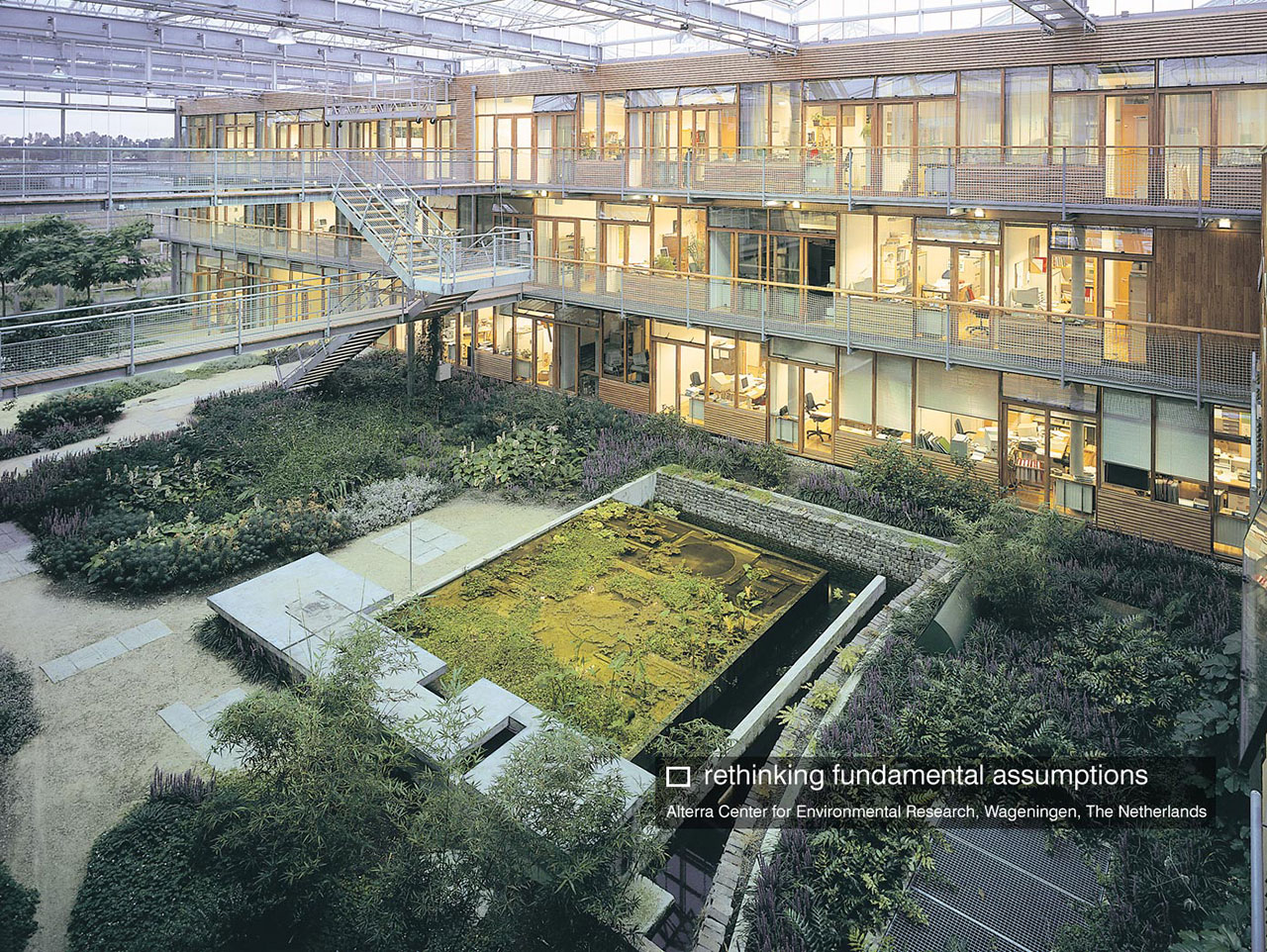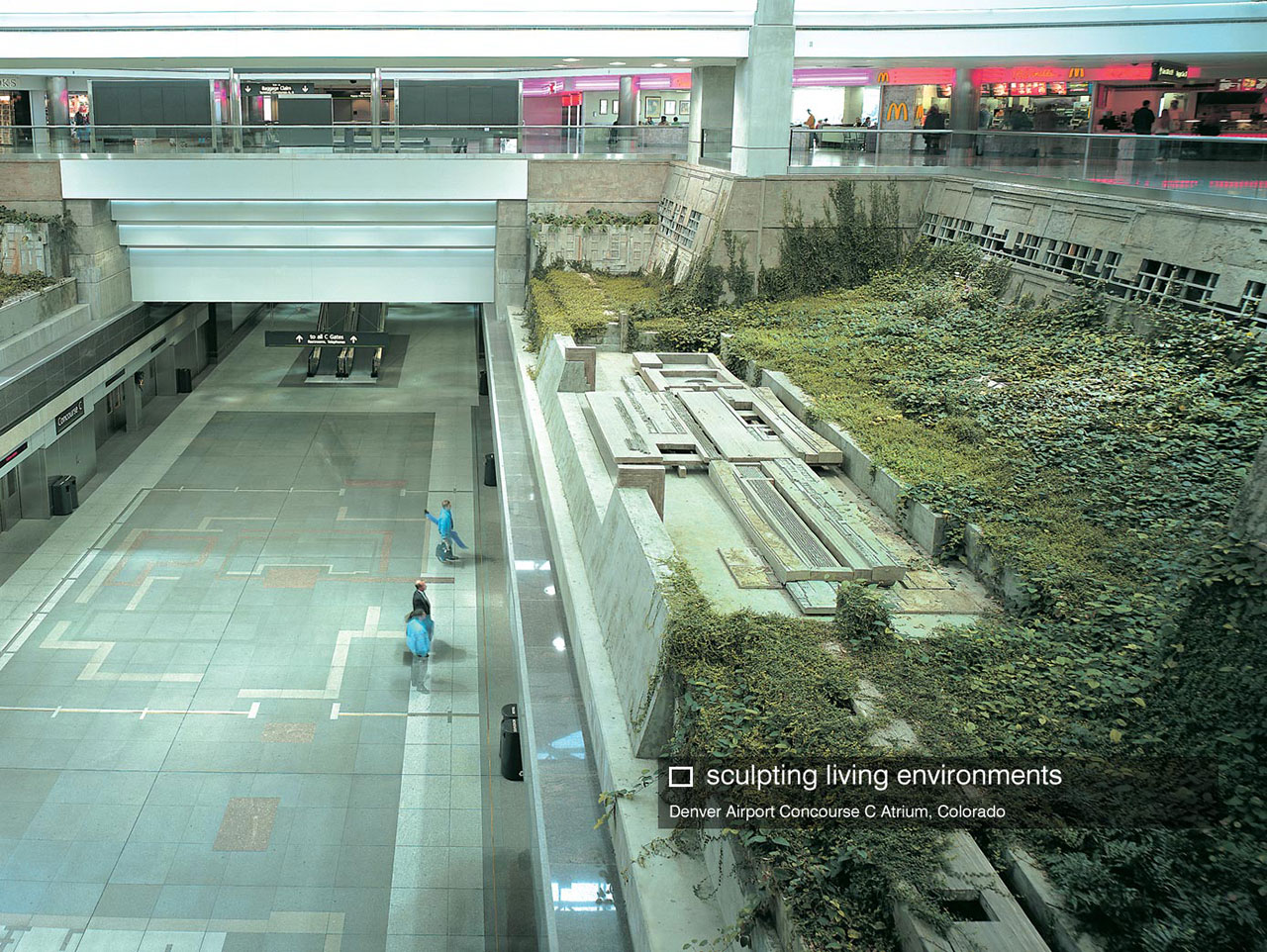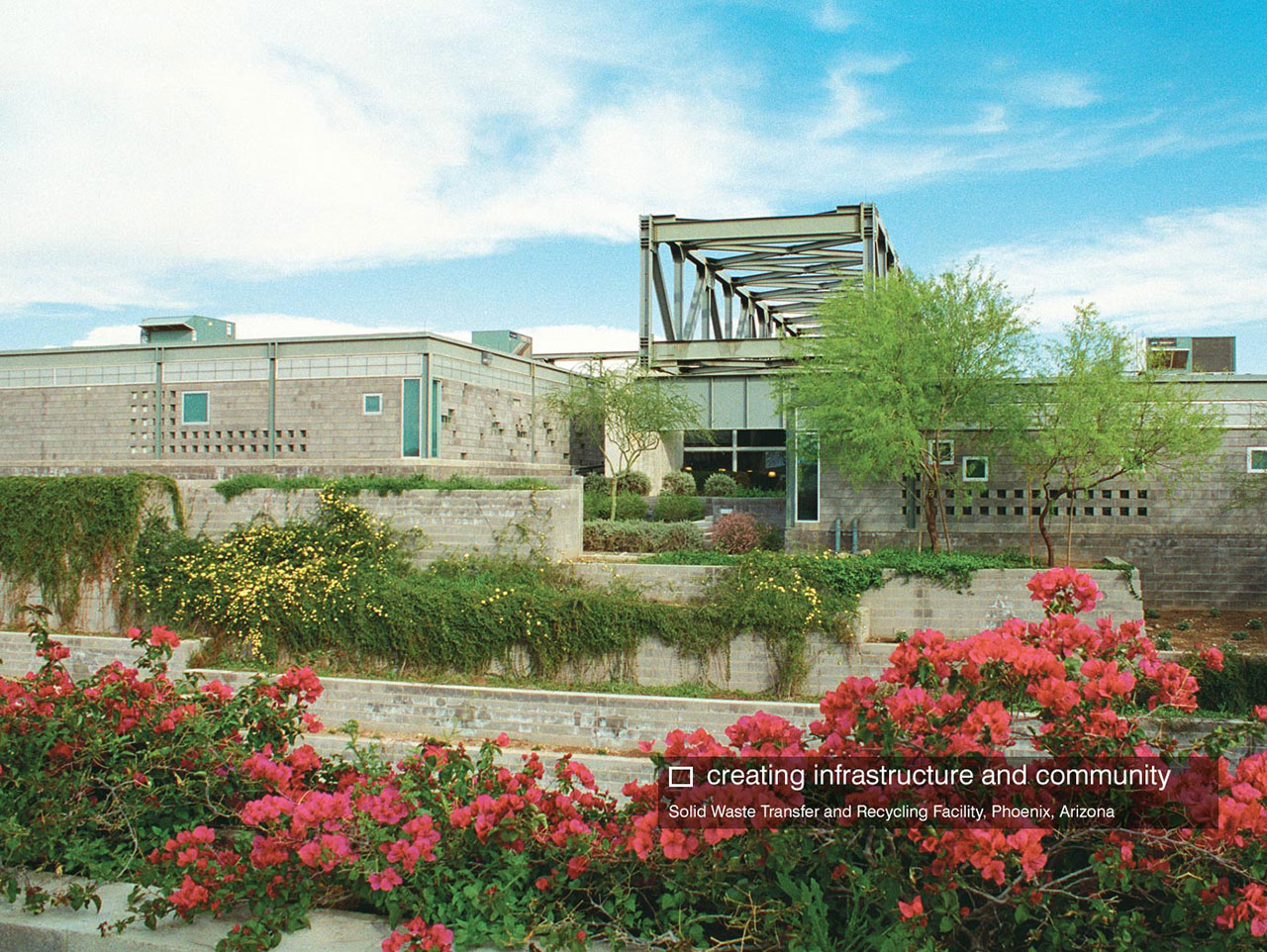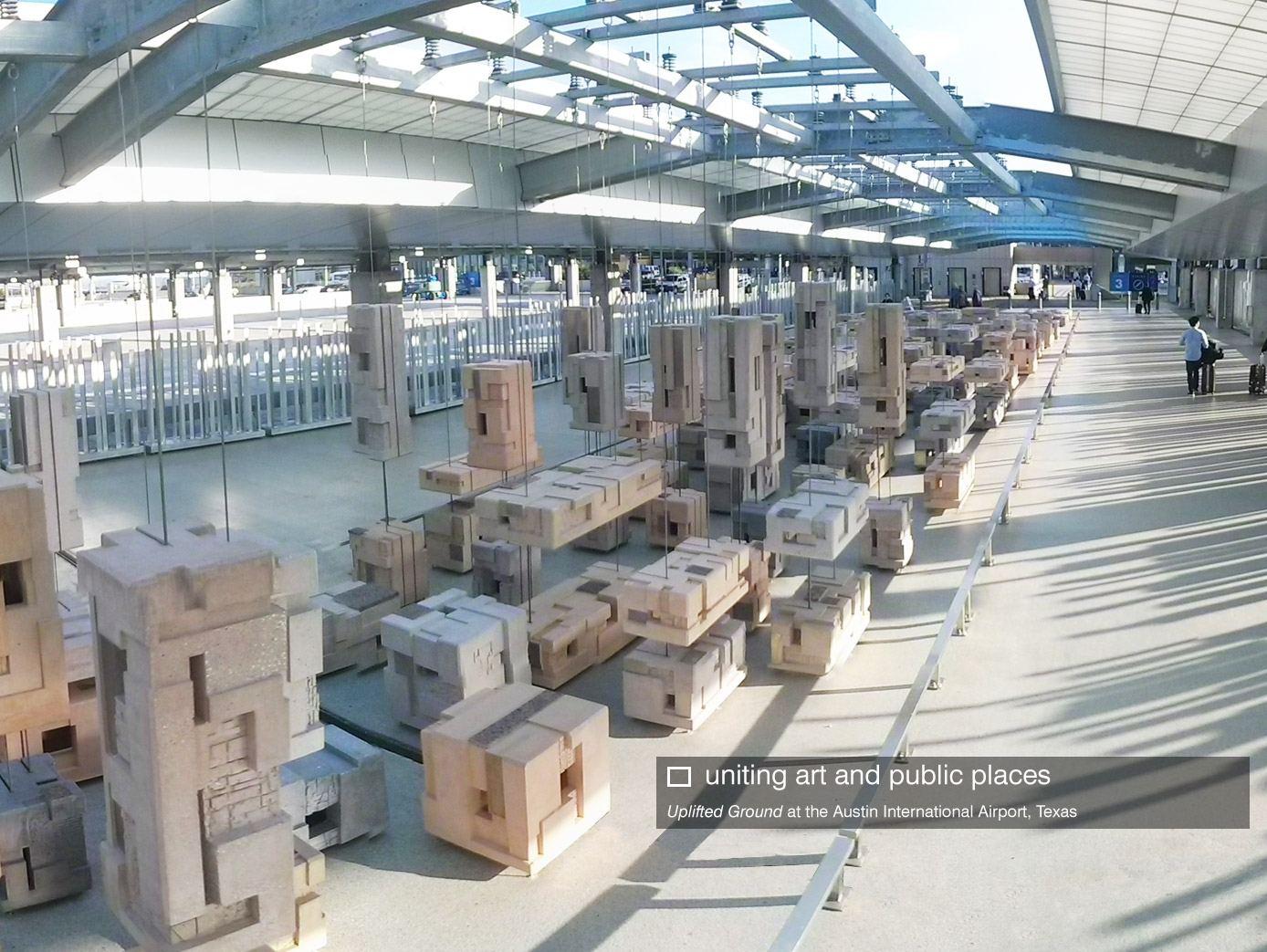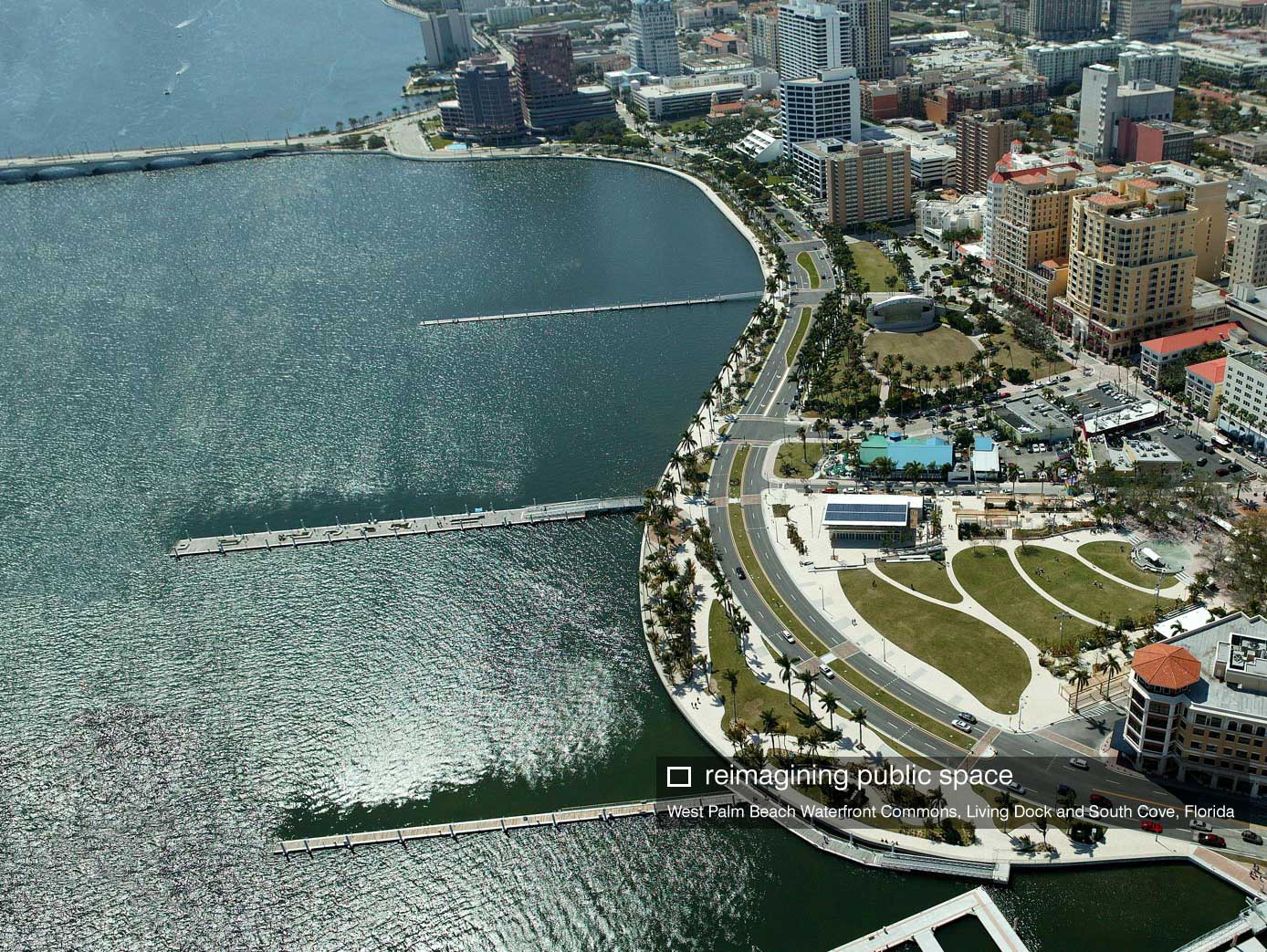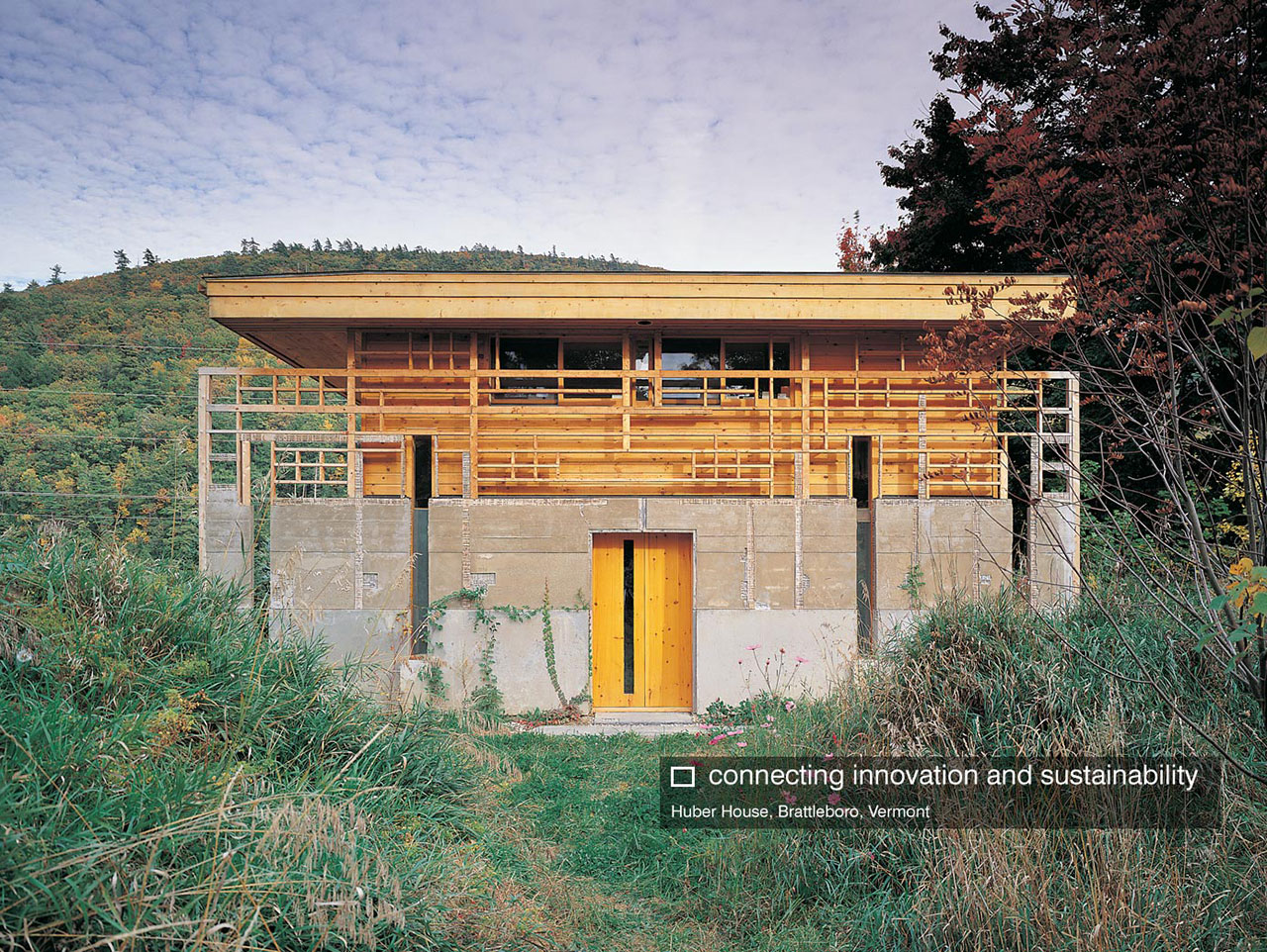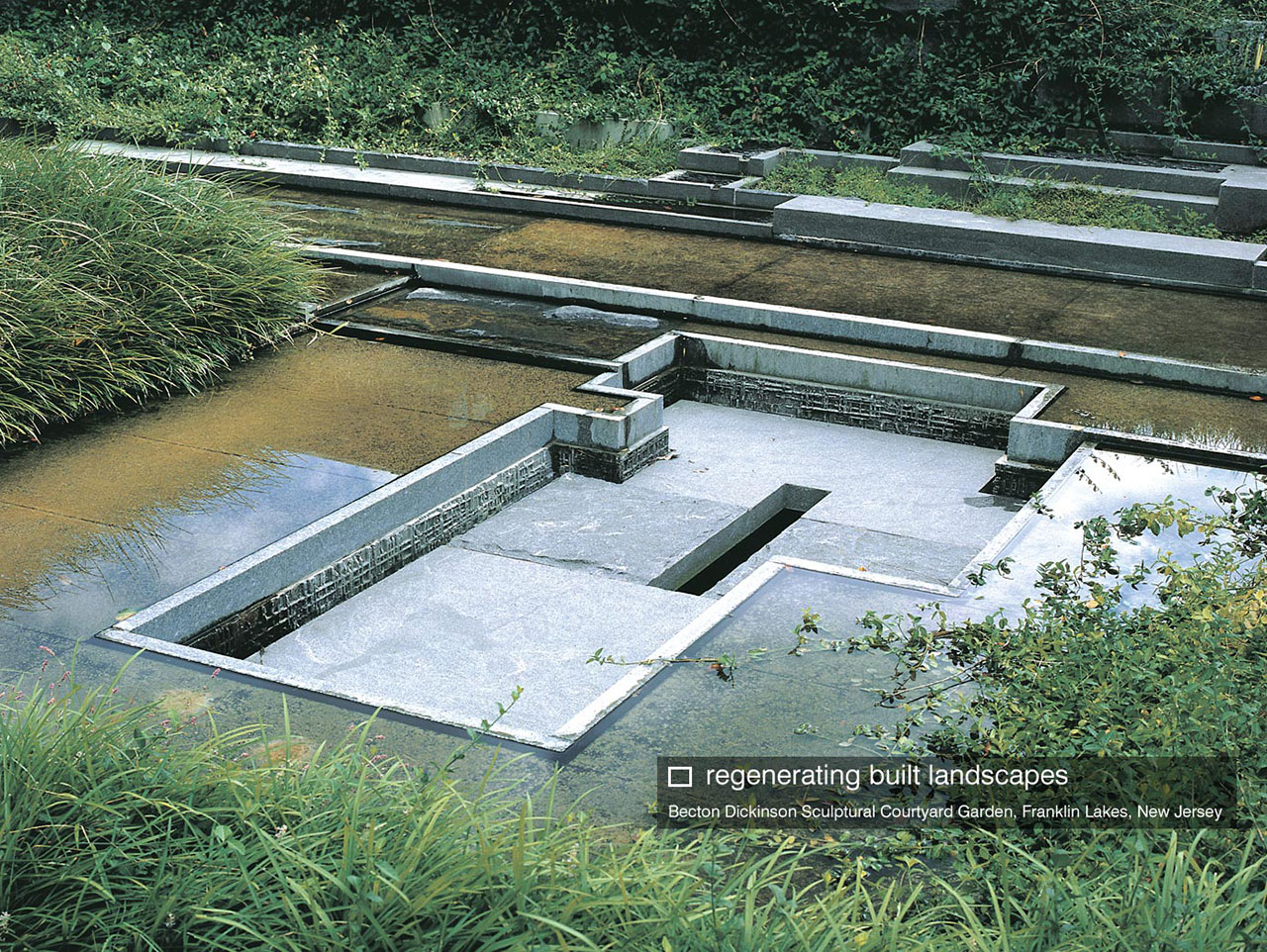Water Gardens
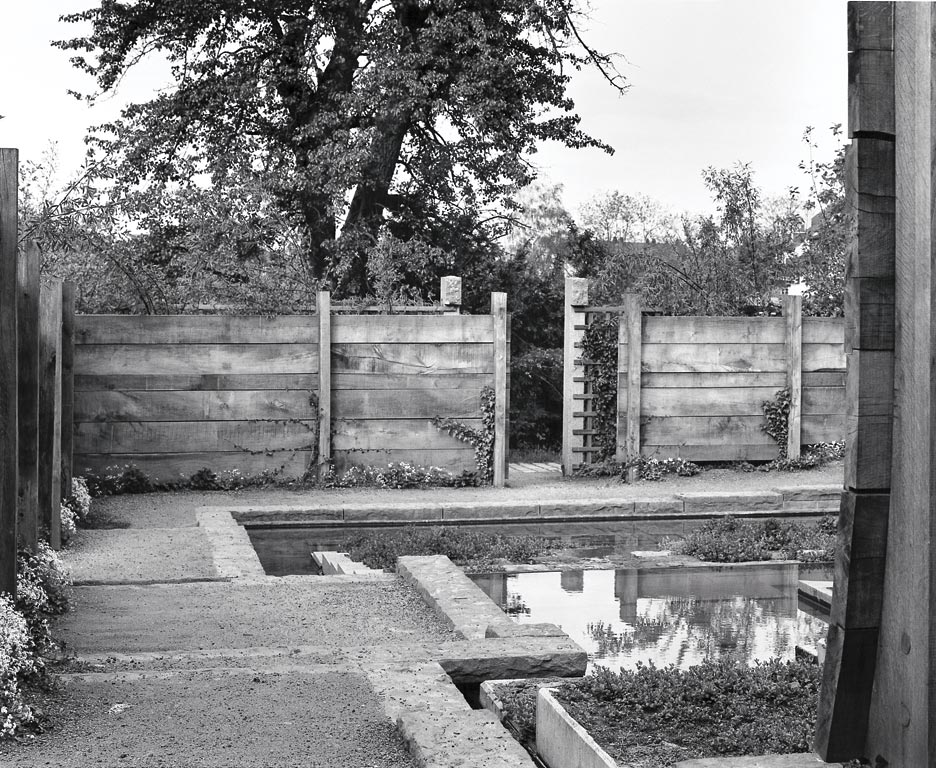
Michael Singer Studio has a unique portfolio of open system water gardens that actively filter water from within the surrounding environment. These projects often use a combination of passive and active systems. Passive systems include directing water to bioswales, wetlands, and retention ponds that capture, treat, or settle out sediments suspended in the water. Queens Plaza in New York City (see here) and the Stuttgart Memorial Garden (see here) are examples of primarily passive water garden systems. These projects are unique in their integration of sculpted elements that function as an integral part of the water quality system. In Queens Plaza the Studio created thousands of custom sculpted permeable paving units and runnels to direct stormwater into an adjacent urban wetland. The Memorial Garden in Stuttgart, Germany, captures water from two streams and directs the water into a series of sculpted wells that work functionally as sculpted retention ponds.
Some Studio projects utilize active filtration systems to cleanse water, promote stormwater and gray water reuse, and enhance habitat viability of surrounding water bodies. The Alterra Atria Gardens (see here) in Wageningen, The Netherlands function as the “lungs and kidneys” of the building complex, cleaning air and gray water as well as providing comfortable climate control. The process begins with stormwater, filtered through an exterior retention pond and constructed wetlands, which is then conveyed into the atria spaces. The sculpted atriums then progressively filter the water through a series of pools with emergent aquatic vegetation and fish. The design was created in collaboration with the scientists working at Alterra, an environmental research institution for the EU. Accordingly the design also provides research and experimentation sites within the garden for environmental scientists working for the institute. The Seminole Sculptural Biofiltration Wall (see here) was conceived as a living system designed to regenerate the surrounding environment by improving water quality, enhancing habitat viability, as well as informing and inspiring the public about ecological systems. The project filters approximately 150,000 gallons of water a day through mechanical and biological systems, improving the water quality of the adjacent retention ponds. The retention pond water is used for irrigating all of the vegetation on site and the entire filtration system and evening LED lighting is powered by a solar pv system.
Water gardens have been a part of public spaces since ancient times and continue to be a core part of new developments around the world. However, most water gardens that are created for the public or within private campuses are sterile- re-circulated chlorinated water that are of scant environmental value. While the Studio philosophy is based on creating water gardens that interact with their environment, the Studio does also create closed loop water elements for certain clients that are unable to maintain the more complex biological systems. In such situations a sterile closed loop water element is preferable to an unmaintained open loop system that will eventually fail due to neglect. This too is sustainable design. In the case of closed loop systems, harvested rainwater is preferable to potable water and smaller footprints are preferable to larger surface areas of water that evaporate more rapidly.

